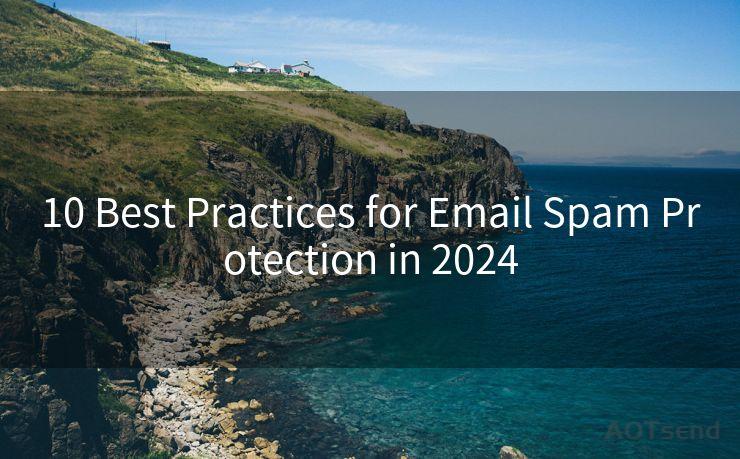10 Best Practices for Email Spam Protection in 2024




Email has become an integral part of our daily lives, both for personal and business communication. However, with the increasing use of email, spam messages have also become a significant issue. In 2024, protecting your inbox from spam is crucial. Here are the 10 best practices for email spam protection.
1. Use a Reliable Email Provider
Choosing a reliable email provider is the first step in protecting yourself from spam. Providers with strong spam filters and security measures can help reduce the amount of spam you receive.

2. Don't Publicly Share Your Email Address
Avoid sharing your email address publicly, as spammers often harvest email addresses from websites and social media platforms. Use contact forms or other methods to protect your email from being scraped.
3. Create a Separate Email for Online Accounts
Using a separate email address for online accounts can help isolate spam and reduce the risk of your primary email being flooded with unwanted messages.
4. Utilize Spam Filters
Most email providers offer spam filters. Ensure they are enabled and adjusted to your preferences for optimal protection.
5. Be Cautious with Unsolicited Emails
Never click on links or open attachments in unsolicited emails, even if they appear to be from a trusted source. These could be phishing attempts or contain malware.
6. Report Spam Emails
Reporting spam emails to your email provider helps improve their spam filters and reduces the chances of receiving similar messages in the future.
7. Unsubscribe from Unwanted Emails
Many legitimate companies provide an unsubscribe option in their emails. Use this to reduce the amount of unwanted email you receive.
8. Use Two-Factor Authentication
Enabling two-factor authentication adds an extra layer of security to your email account, making it more difficult for spammers to gain access.
9. Regularly Update Your Password
Updating your password regularly reduces the risk of your account being hacked, which can lead to an increase in spam emails.
10. Educate Yourself and Your Team
Staying informed about the latest spam techniques and teaching your team or family members how to identify and avoid spam can significantly reduce the risk of falling victim to spam-related scams.
In conclusion, protecting your email from spam in 2024 requires a multifaceted approach. By following these 10 best practices, you can significantly reduce the amount of spam you receive and keep your inbox safe from unwanted messages. Remember, staying vigilant and educated is key to maintaining a spam-free inbox.
🔔🔔🔔
【AOTsend Email API】:AOTsend is a Managed Email Service for sending transactional emails. Support Email Types: reminders, authentication, confirmations, notifications, verification codes, invoices, password resets, account activations, billing statements, two-factor authentication (2FA), and one-time passwords (OTP) emails, etc. $0.28 per 1000 Emails. 99% Delivery, 98% Inbox Rate.
You might be interested in:
Why did we start the AOTsend project, Brand Story?
What is a Managed Email API, How it Works?
Best 25+ Email Marketing Platforms (Authority,Keywords&Traffic Comparison)
Best 24+ Email Marketing Service (Price, Pros&Cons Comparison)
Email APIs vs SMTP: How they Works, Any Difference?




Scan the QR code to access on your mobile device.
Copyright notice: This article is published by AotSend. Reproduction requires attribution.
Article Link:https://www.mailwot.com/p1030.html



